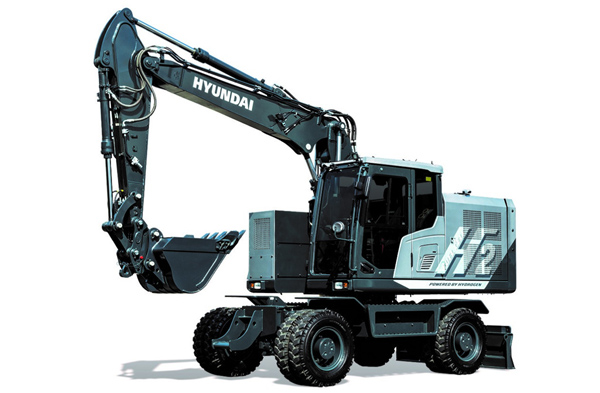There’s a lot of “buzz” when it comes to electrically powered equipment. Most manufacturers carry a variety of battery-electric excavators and loaders in their current line-ups.
However, there are challenges for electric power as machines get larger. Batteries are expensive and large equipment needs a lot of them. That can push the price tag for battery-electric well above that of the equivalent ICE. Recharging onsite can be also a challenge.
Those factors are counter-balanced by the potential of hybrid power, battery swapping instead of recharging, and lower maintenance costs of battery-electric equipment versus ICE over its projected life. McKinsey Global provides of the ownership implications of battery-electric versus ICE.
While a zero-emission future lies ahead for construction equipment, the path may not be solely reliant on battery-electric. First of all, diesel isn’t going anywhere for the time being. ICE-powered equipment has a long service life. Secondly, hydrogen is a viable green alternative, particularly for larger machines.
British heavy equipment manufacturers are at the forefront of hydrogen power for construction, notably equipment-maker JCB. Hydrogen is now a declared part of the company’s mission statement.
“I’m often asked, ‘Why hydrogen?’” Lord Bamford, chairman of JCB. “Two years ago, I set the challenge that we should be making hydrogen engines for the construction industry and for agriculture. Two years later, we have hydrogen engines working in the kind of equipment that JCB makes. A solution that delivers power in the same way as conventional engines, but with none of the fossil fuels. We’re proving daily that hydrogen does work, that it’s a clean, renewable, transportable fuel.”

The challenge for battery-electric is the capability of providing power to equipment that is expected to be available for 12 hours of heavy work each day. However, a hydrogen-powered engine is capable of many continuous hours of work. As an example, Mercedes has announced that a heavy transport test vehicle was able to run over 1,000 kilometres on a single tank of green hydrogen. For construction, any required onsite refuelling can be made practical with mobile refuelling trucks, something JCB has also developed.
Hydrogen can be combusted to deliver power in much the same way as a diesel engine. Existing diesel power plants also have the potential to be refitted for hydrogen. Another U.K. manufacturer, Balfour Beatty, has been funded by the to develop their hydrogen refit project.
Hydrogen can also be used as a fuel cell to create electricity. The hydrogen reacts with oxygen across an electrochemical cell, similar to a battery, to produce electricity, water and small amounts of heat.
Mobile lift platform manufacturer Niftylift has collaborated with U.K. rental firm Speedy Hire to design and manufacture the . Speedy Hire says the platform can run for up to five days on a single charge.
Well-known international equipment manufacturers are beginning to develop, and in some cases offer to market, machines powered by hydrogen fuel cells.
In the first of several concept tests to determine the future potential of hydrogen, Komatsu is collaborating with Toyota Motor Corporation to combine Toyota’s hydrogen fuel cell system with Komatsu’s control technology and components for use in a medium hydraulic excavator.
Hyundai Construction Equipment showcased its second-generation hydrogen fuel cell excavator at this past March, after displaying concept machines in October 2022 at the Bauma expo in Munich, Germany. This is also a collaborative effort, linking its Hyundai Motors and Hyundai Mobis divisions with the company’s Mabuk Research Centre in Yongin-si, Gyeonggi-do, South Korea.
Adoption of hydrogen power in Canada is restricted by the commercial availability of hydrogen.
While available to commercial operators in Asia and Europe, hydrogen refuelling facilities are . Ontario only gained its first publicly available hydrogen station this year, near Toronto’s Pearson Airport.
In order to embrace this zero-emission possibility, Canada’s construction industry needs the development of a hydrogen refuelling network across the country, something that does not appear imminent.
John Bleasby is a Coldwater, Ont.-based freelance writer. Send comments and Inside Innovation column ideas to editor@dailycommercialnews.com.



Recent Comments
comments for this post are closed